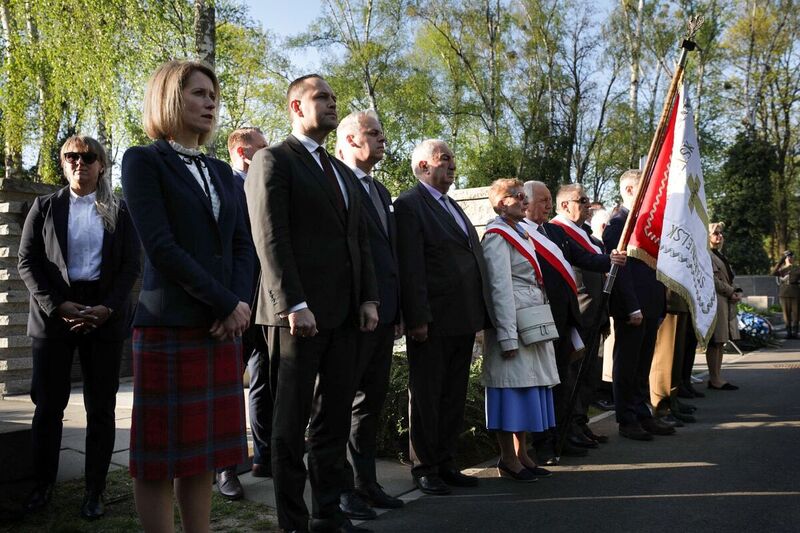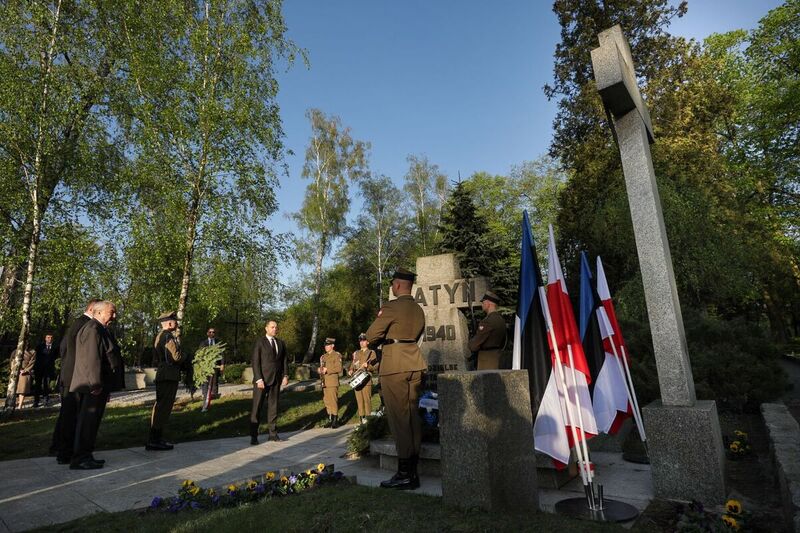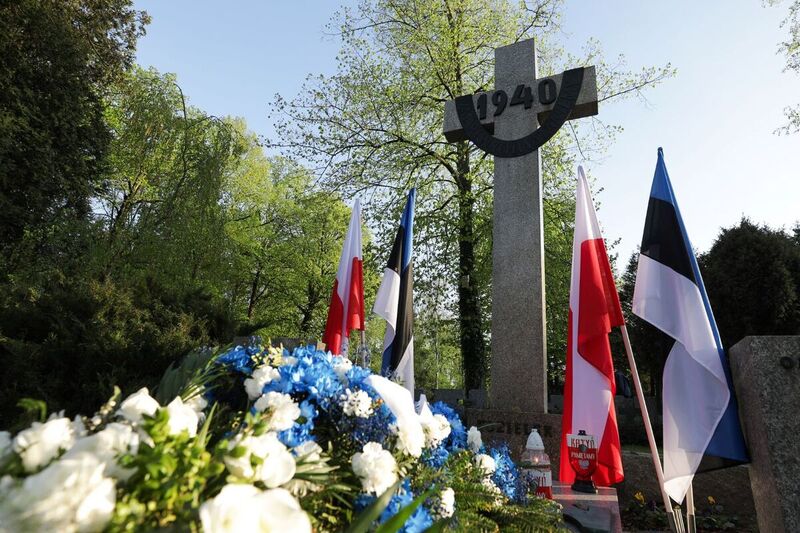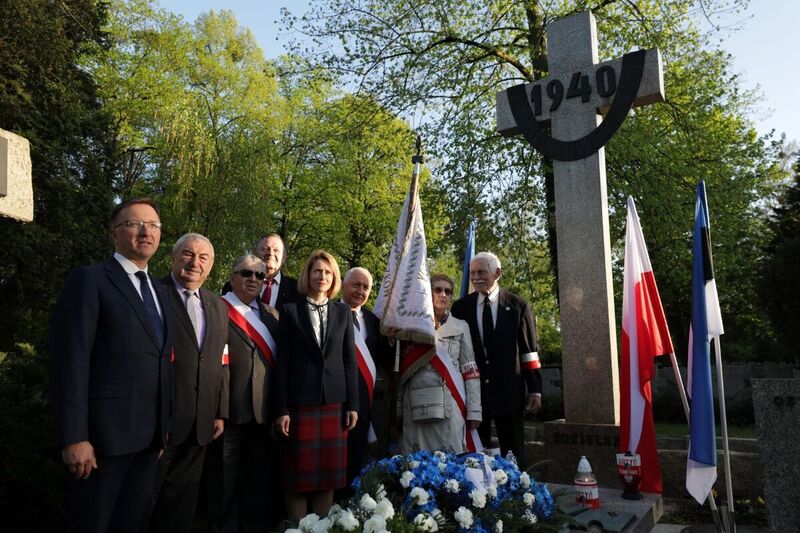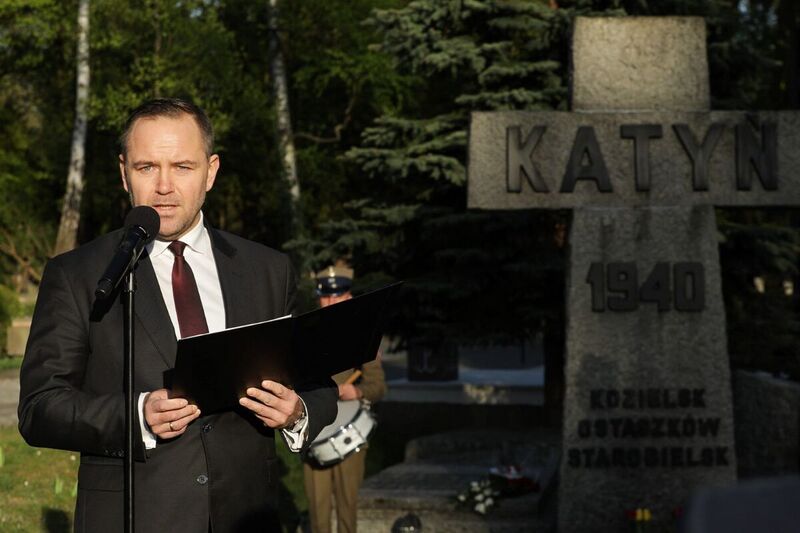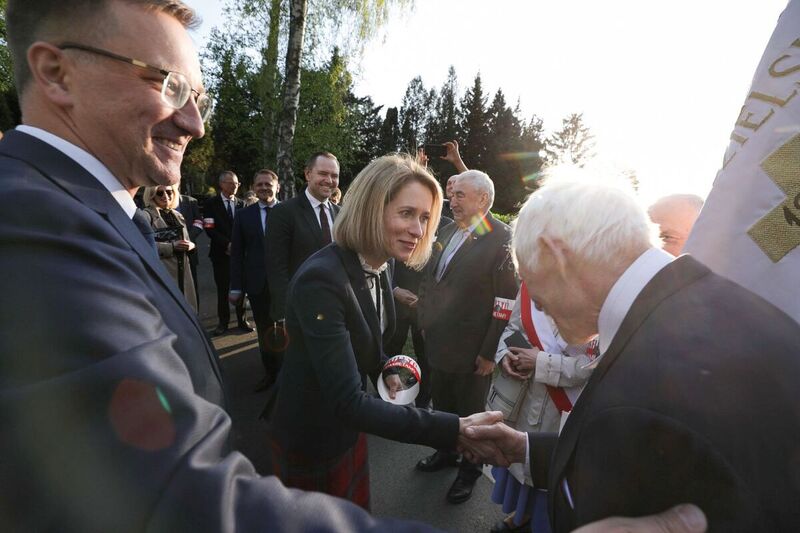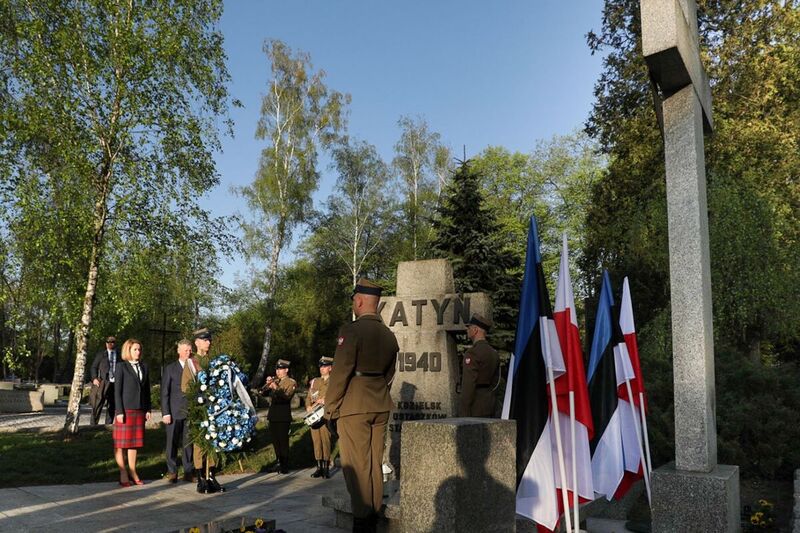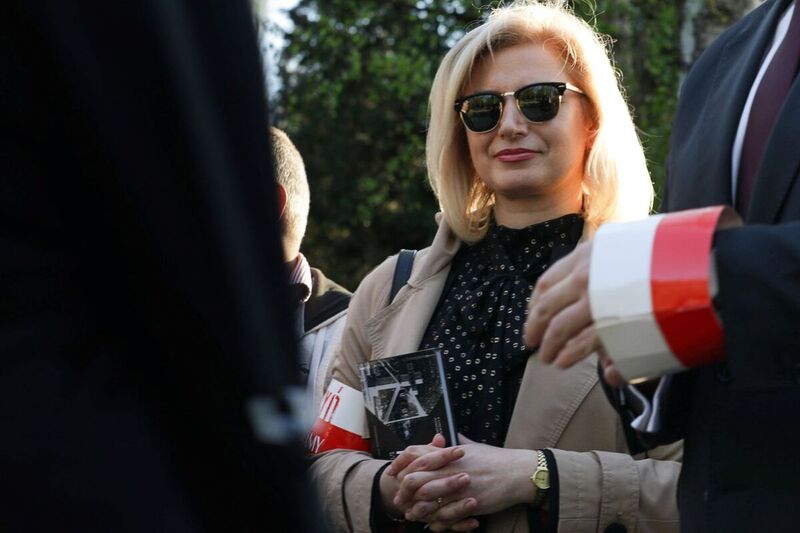The Powązki Military Cemetery in Warsaw witnessed a ceremony commemorating the 22,000 victims of the Katyń Massacre, a symbol of the criminal policy of the Soviet system against the Polish nation
The Prime Minister of Estonia and the IPN head laid flowers under the Katyn Cross located in the so-called “Katyn Valley” at the Powązki Military Cemetery in Warsaw.
Poland and Estonia share similar experiences in recent history. The Molotov-Ribbentrop Pact, signed on 23 August 1939, on the eve of the outbreak of World War II, left its mark on both countries. For more than half a century both countries found themselves in the Soviet sphere of influence. An integral part of the pact was its secret protocol that demarcated the spheres of German and Soviet influence in Poland, the Baltic states and Romania. Under its terms, part of the Polish lands, as well as Estonia, were annexed to the USSR.
Poland and Estonia experienced two totalitarianisms during World War II, and after the war - Sovietization, extermination and terror by the NKVD. Both nations also experienced mass deportations deep into the USSR.
In his speech the IPN President spoke about the Katyn Massacre – its cause, its course and the consequences, such as the so-called “Katyn lie”.
“For many years, Katyn has been a symbol of the tragedy suffered by Poles during World War II. The Soviet falsification of the circumstances surrounding the Katyn Massacre became the founding lie of the communist government of enslaved Poland. The Katyn lie remained part of the official communist propaganda for more than four decades, until the collapse of the Soviet regime,” he said.
In his speech Karol Nawrocki also stressed the importance of the removal from the public space of all Soviet propaganda objects and other relics of the Soviet regime not only in Poland but also in all former Eastern Bloc countries. Because of the ongoing process of decommunization of public space, the Russian Federation has placed Estonian Prime Minister Kaja Kallas and IPN President on its list of opponents.
“Bearing in mind the suffering of the victims of the communist totalitarian regime and the toll it has taken on European societies, I declare that I will continue the process of decommunization in Poland. The fact that, similarly to Prime Minister Kaja Kallas, I have been placed among those ‘wanted’ by the Russian Federation will in no way impede my efforts. On the contrary, I see this as a motivating factor. Regimes honor war criminals. The civilized world honors the victims,” said Karol Nawrocki.
For more information on Katyn please check our collected content.
The event organized by the IPN coincides with the 84th anniversary of the massacre. In connection with the anniversary, the IPNtv presented a spot entitled "The Katyn Massacre. An unpunished Soviet crime", prepared by the IPN's International Cooperation Office.
